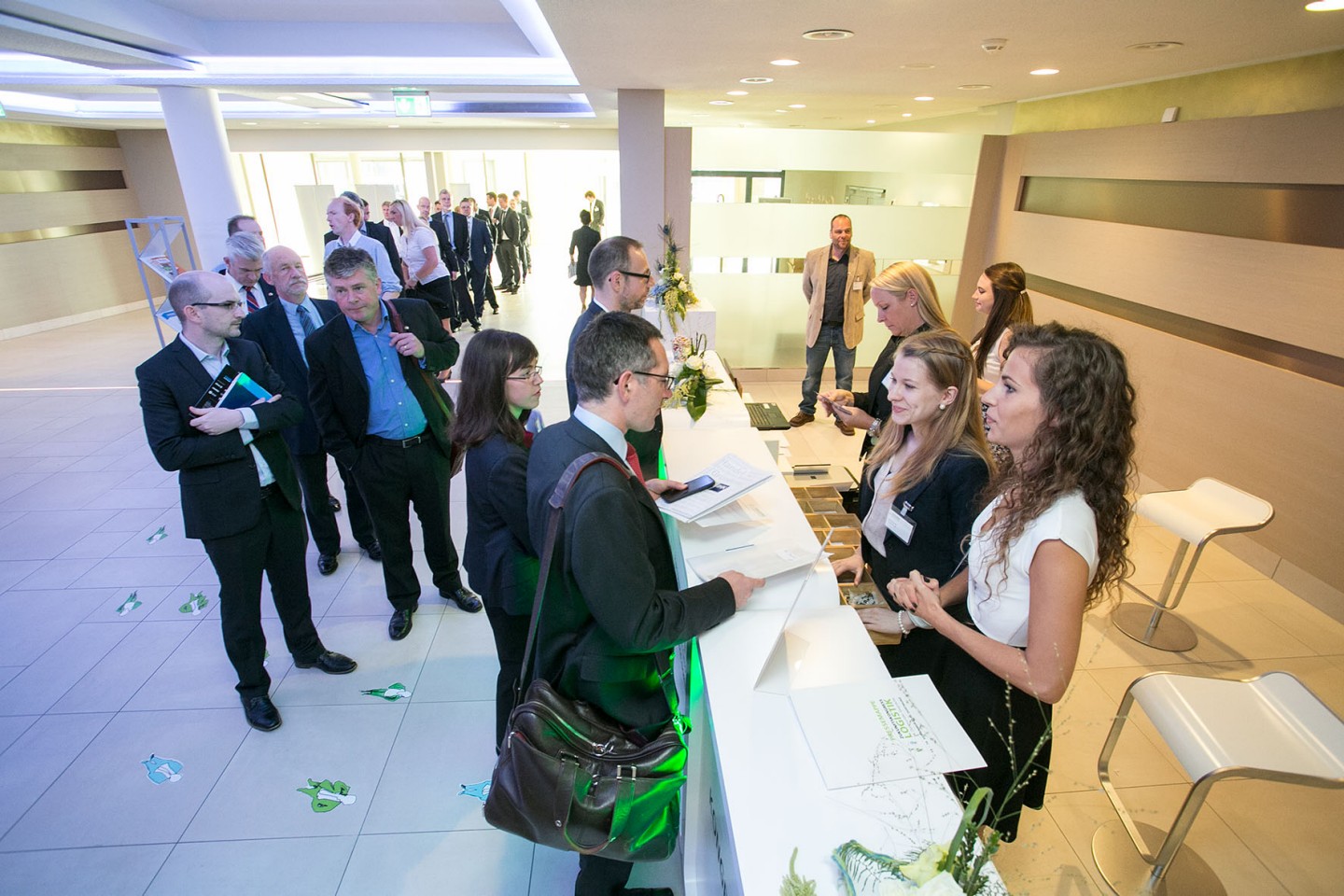"Hands on!"
As part of digitalisation existing business models are under attack and that forces companies to a radical change of thinking. Be it great visions or little steps – only those who approach the requirements of Industry 4.0 now will find their place in the Social Networked Industry of the future. That is why the "Future Logistics Congress – 34th Dortmund Talks" on September 13 and 14, 2016, hosted by Fraunhofer Institute for Material Flow and Logistics IML and EffizienzCluster LogistikRuhr, demonstrated how the fourth industrial revolution can be successful. With the motto "How to do the Revolution" more than 500 participants from business and science discussed questions that keep us thinking today and in future.
In the world after the fourth industrial revolution social networks will develop together with man and machine. In his opening speech on the occasion of this year’s Future Logistics Congress Prof. Dr. Dr. h. c. Michael ten Hompel, managing Director of Fraunhofer IML, gave an insight into this Social Networked Industry in which man and machine work together as equal partners. Implementing this future vision, first steps are required as soon as possible. Rather than having long discussions or developing new processes and teachings the name of the game is now: Get your hands on! Ultimately, logistics can only succeed to be on top of the fourth industrial revolution and geared up for Social Networked Industry, if solutions become implemented and tested quickly. Only this way mistakes can be recognised and corrected as quickly as possible. Without such a fast-failure culture the innovation potential of the industry cannot be fully exploited. That has always been the philosophy of the Dortmund logistics landscape and today this is more important than ever for companies.
"It was never easier to develop both its own software and hardware – and it was never as important as it is today. The name of the game is: Hands on! Companies of any shape and size must adapt to the digital change. To be successful means to be quick. Waiting to see what the others are doing is a fatal mistake", emphasizes ten Hompel.
This also requires a new founder generation that has to quickly obtain acceptance in business. Established companies have to adjust to generation Y – both as business partner and as customer facing trends like gamification and sharing economy. "Hands on and just do it" is here of specific importance: The access to Industry 4.0 must be as easy as possible for companies. This way, also the mid-sized companies, backbone of the Germany economy, can get involved. For small and mid-sized companies little steps are often more important and valuable then great visions.
 Fraunhofer Institute for Material Flow and Logistics IML
Fraunhofer Institute for Material Flow and Logistics IML